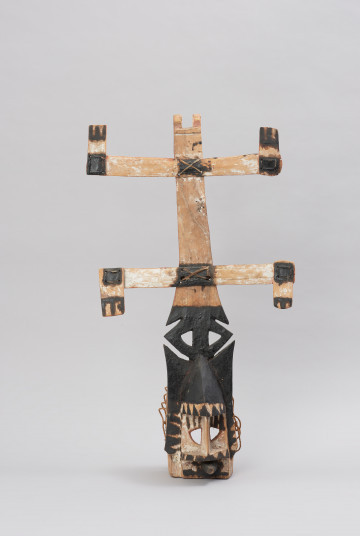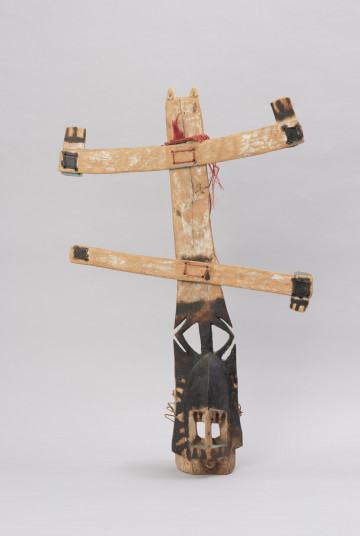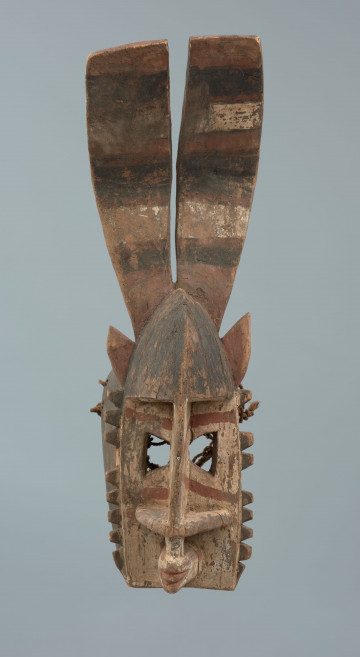
Kanaga mask
między 1951 — 1984
National Museum in Szczecin
Part of the collection: Collection of Dogonian art
Kanaga mask is called awa donu pini in the Sigi-so language, meaning 'young mask of wood'. Like other Dogon masks, it is danced during the Dama funeral festivals, ending the long period of mourning for the deceased. The symbolism of kanaga is very complex. Depending on the level of initiation, it is also interpreted differently. For the young Dogon it is an image of a predatory kommolo tebu bird with outstretched wings. Its beak is red, its forehead black and its wings white. For those who have attained some knowledge, kanaga symbolises a human being depicted as the axis of the world, pointing towards heaven and earth at the same time. Some see in its shape the figure of a jackal (a pale Yurugu fox) that introduced chaos into the original divine order. Others say that it is an image of the god Amma, the upper arm of the mask being his hands, while the lower one is his legs. There is sometimes an opinion that kanaga reflects the universe with its arms being heaven and earth respectively. According to Germaine Dieterlen, a French Africanist who has devoted most of her professional career to the study of the Dogon, the kanaga mask represents the events that took place at the beginning of the creation of the universe by the god Amma. Its true meaning is not hidden in its shape, but in its dance, which imitates the gesture of Amma setting the stellar universe in motion right after he created it and the line of the track followed by the Ark of Nommo travelling from the Sirius system to Earth.The mask is used by the Awa society, whose members are all circumcised men.
Ewa Prądzyńska
Author / creator
Dimensions
cały obiekt: height: 107 cm, width: 62 cm
Object type
sculpture, mask
Creation time / dating
Creation / finding place
Identification number
Location / status

między 1951 — 1984
National Museum in Szczecin

między 1951 — 1984
National Museum in Szczecin

między 1951 — 2000
National Museum in Szczecin
DISCOVER this TOPIC
National Museum in Lublin
DISCOVER this PATH
Educational path